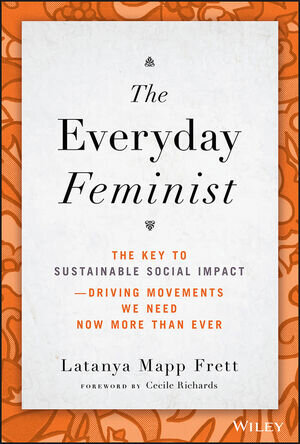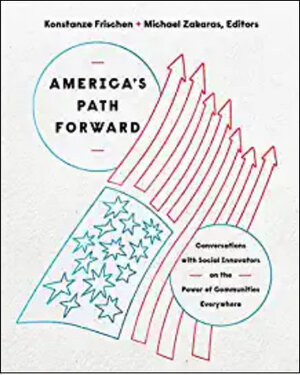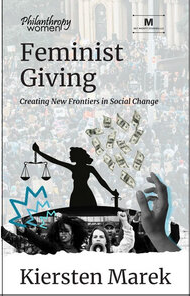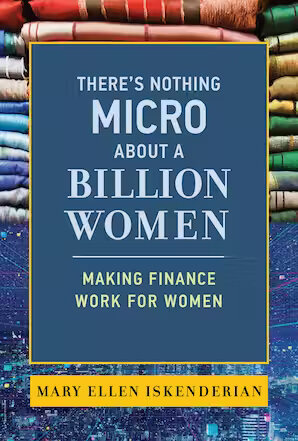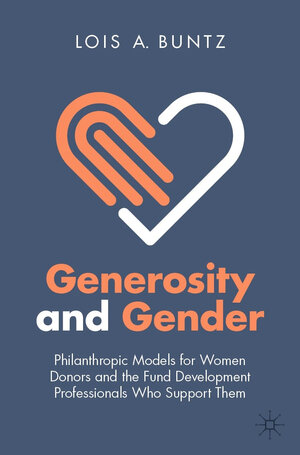The Everyday Feminist: The Key to Sustainable Social Impact — Driving Movements We Need Now More than Ever
With the reversal of Roe v. Wade, today, women in the United States are discussing the likelihood of a significant erosion of their rights with the kind of urgency perhaps not seen in generations. As the assault on women’s rights continues and other issues affecting women—such as disparities in health care, a downturn in economic empowerment, and the increase in gender-based violence, racial injustice, and LGBTQIA discrimination—proliferate, grassroots feminist activists and social movements focused on combating these issues are on the rise.
Yet, there are groups of activists whose profound social impact is not just underfunded but overlooked. These are the everyday feminists—many of whom are Black, Indigenous, and other people of color—whose activism typically begins without ties to an organization but is nonetheless important, because they are also uniquely positioned to come up with solutions, sometimes due to urgent necessity, since they have direct experience with the issues.
In The Everyday Feminist: The Key to Sustainable Social Impact — Driving Movements We Need Now More than Ever, author Latanya Mapp Frett, president and CEO of the Global Fund for Women, celebrates the work these everyday feminist activists do and the movements they create.
As reported in the Ms. Foundation for Women’s study Pocket Change: How Women and Girls of Color Do More with Less, women’s organizations and feminist and grassroots movements received less than 1 percent of total funding from the global philanthropic community in 2017, half of which went toward women and girls of color in the United States. Frett asks philanthropy, foundations, and individuals alike to embrace and value the slower path to lasting change that feminists must traverse. Frett hopes that funders will stick with these everyday feminists—who may be the nurses, teachers, soccer moms, and soup kitchen workers in our communities—through the ups and downs. She also hopes that these feminists will be recognized and protected as human rights defenders and acknowledged as the backbone of bigger, transformative social movements like Black Lives Matter and Me Too.
[I]f we are serious about the social impact goals of our civic and nonprofit sectors and our personal and institutional giving—we cannot continue to underestimate, undervalue, underappreciate, and underfund those who are the crucial levers to sustainable change.
“The perennially overachieving yet under-supported everyday feminist,” as Frett refers to them, makes the point that in this nation of privilege, if we are serious about the social impact goals of our civic and nonprofit sectors and our personal and institutional giving—we cannot continue to underestimate, undervalue, underappreciate, and underfund those who are the crucial levers to sustainable change. These individuals are often from marginalized communities living on the lower socioeconomic scale but center their communities in their work. Due to their interconnectedness and intrinsic understanding of social problems, they take an intersectional approach, think big, and often deliver unexpected results for their communities. In some circumstances, they may also be men.
The most significant takeaway from The Everyday Feminist is how well Frett observes and listens. Her book offers a wide-reaching, continent-spanning, global collection of heartfelt narratives that describe in detail the women who are creating change and helming social movements and are told with care and adoration. They also are presented with an eye toward forward momentum and a gravitas that comes with immersing oneself in the environment and standing witness to these women’s stories, the lives they’ve led, the losses they’ve suffered, and the tenderness, strength, and heart that have moved them all to action. There is an undercurrent of grit and determination in all of the stories told that can be despairing, uplifting, and inspirational. Frett serves as both storyteller and conduit.
As much as this book highlights the work of everyday activists, it is also a dedicated primer designed to introduce the philanthropic sector to this work.
Frett sees philanthropy’s potential to advance feminist movements as a no-brainer. She implores funders to think about investing in these relationships and movements from the beginning not as short-term grants but as long-term commitments, as adequate funds can drive “unrestricted growth.” As much as this book highlights the work of everyday activists, it is also a dedicated primer designed to introduce the philanthropic sector to this work and to center it in a way that reinforces the urgent need for feminist funding that does not need to take an always familiar path. Acutely aware of who gets funding (religion, education, human services, and funding that’s redistributed to other grantees) and where it falls flat in total giving for women and girls, she says plainly that funders are failing these change agents. However, Frett does note that younger donors are more diverse in their funding areas and tend to fund causes that overlap with everyday feminism. She speaks out against the supposed reasons why everyday feminists lack funding—including that they can’t be reached, that they don’t have the power to create change, that these types of activists don’t deliver—and against the effects of racism.
Frett puts the spotlight on women like Tarana J. Burke, founder of the MeToo movement, and her work fighting against gender violence; M. Adams, co-executive director of Freedom Inc. and a leading figure in the Movement for Black Lives (M4BL), and her career fighting for racial justice; Miriam Miranda, general coordinator of the Black Fraternal Organization of Honduras (OFRANEH), and her work with the Indigenous rights movement and her fight for culture survival; and Loretta Ross, a principal partner with 14th Strategies Consultants, and her work with the reproductive justice movement, and the struggle for bodily autonomy.
These are just a few of the women who have taken on causes that have affected them significantly, like Refiloe Harris, who advocates for the health and well-being of the herd boys in Lesotho, South Africa. Her story is simultaneously heartrending and inspiring. It is a clash of culture and duty with prioritizing the basic human health and protection needs of young boys in the region. And there are the women at the forefront of the menstrual health movement who work tirelessly to give girls an opportunity to succeed without being shackled by their periods, those advocating for children lost to the streets in nations the world over, and still others who advocate for victims of honor killings.
Drawing on her 30 years of experience working for the NAACP, UNICEF, USAID, Planned Parenthood, and the Global Fund for Women, traversing the globe from America to Africa and Pakistan and fighting for women’s human rights, Frett shares lessons she’s learned along the way, like not giving up while in the trenches, staying close to those affected by the causes you’re championing, acknowledging the why behind the work, learning how to be a good partner, and getting out of the way of young feminist leaders. She quotes Uruguayan writer Eduardo Galeano: “Many little people, in little places, doing little things, can change the world.”
Frett shares lessons she’s learned along the way, like not giving up while in the trenches, staying close to those affected by the causes you’re championing, acknowledging the why behind the work, learning how to be a good partner, and getting out of the way of young feminist leaders.
The Everyday Feminist delivers a singular clarion call for the mobilizing mantra of “listen to women.” Frett makes the point expertly and poignantly while focusing on the task at hand—telling the philanthropic community to cease overlooking the everyday feminist, which is often about supporting brave women wherever they are, and give to them because they are deserving. As Frett says, “invest in women, their organizations, and their movements, and they will take care of themselves and their families, their communities, their countries, and the earth” for the betterment of us all.
Lauren Brathwaite is content editor at Philanthropy News Digest.


